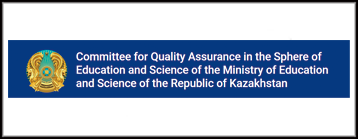Study of influence of the charge granulometric composition on the quality of burned anodes
DOI:
https://doi.org/10.31643/2021/6445.35Keywords:
anode mass, production of baked anodes, gas permeability, density, granulometric composition, fine fraction.Abstract
Many factors affect the quality of produced anodes: composition and grade of raw materials, recipe, technology, operating parameters, the granulometric composition of charge materials etc. The most significant influence is from the last factor. The article provides research results on the effect of fine fractions on the quality of anodes. The research object is charge of different granulometric composition used to produce anodes at the Kazakhstan Electrolysis plant in Pavlodar. Six types of anode mass with different granulometric composition were prepared for the experiment. The anode mass was made of petroleum coke, pitch, recycled anodes, and dust from filters and grinder produced during coke treatment. Several properties of the specimens were studied. In total, six specimens were made and, specimen № 4 drew particular attention. Its granulometric composition is as following: coarse fractions – 25 %, medium fractions – 20%, fine fractions (grinder dust) – 50 %, and filter dust – 5 %. The results showed that some specifications of anodes, like gas permeability and apparent density that affect anode consumption, are improved as the fineness of dust grinding. For instance, the addition of dust fraction in the charge increases anode density from 1.542 to 1.639 kilogram per cubic decimeters and decreases gas permeability from 1.01 to 0.78 nPm. In addition, the presence of dust fraction minimizes the porosity of the anode block. The results of the investigation help adjust the optimal recipe of anode mass to obtain high-quality anodes.
Downloads
References
Tolymbekova L.B., and Zhaksybaev N.A. Influence of pre-burned anodes with slots on the performance indicators of electrolysers. Deutsche Internationale Zeitschrift für zeitgenössische Wissenschaft.2021.pp. 48-53.
ShahraiS. G.,SharypovN. A.,PolyakovP. V., KondratievV. V., KarlinaA. I. Qualityofanode. Overview of problems and some methods of their solution Part 2. Improving the quality of the anode.International Journal of Applied Engineering Research. 2019.Vol.12,Is.21
R&D Carbon Ltd. Anodes for Aluminium Industry //1-st Eddition.2018. Sierre (Switzerland).-394 р
Polyakov P.,Yasinskiy A., Polyakov A.,Zavadyak A.,Mikhalev Y., Puzanov I. Anode overvoltages on the industrial carbon blocks.Minerals, Metals and Materials Series. 2019.
Fialkov A. S. Uglegrafitovye materialy [Carbon graphite materials].Energiya. 1979. pp. 320. (in Russ.).
Chalykh U.F. Oborudovanie elektrodnykh zavodov[Equipment for electrode plants]. Metallurgiya.1990. pp.125.(in Russ.).
Sannikov A.K., Somov A.K., Klyuchnikov V.V. i dr. Proizvodstvo elektrodnoyproduktsii[Manufacture of electrode products].Metallurgiya.1985. pp.129. (in Russ.).
Yanko E.A. Anody alyuminievykh elektrolizerov [Aluminum electrolytic cell anodes]Izdatel'skiy dom Rudy i metally.2001. pp.670. (in Russ.).
Wombles R.H. Developing coal tar/petroleum pitches // Light Metals. 2000. pp. 537-541.
Shi Zhong-ning, Ren Bi-jun, Wang De-xi, Investigation of the failure of a 300 kA prebaked anode reduction cel // Light Metals.2006. P. 458-462.
Mann V. The SoderbergTechnology: Problems or Advantages in the Future // Light Metals. 2006. P. 181-183.
Downloads
Published
How to Cite
Issue
Section
License
Copyright (c) 2021 Akizhayeva, A.

This work is licensed under a Creative Commons Attribution-NonCommercial-NoDerivatives 3.0 Unported License.


























